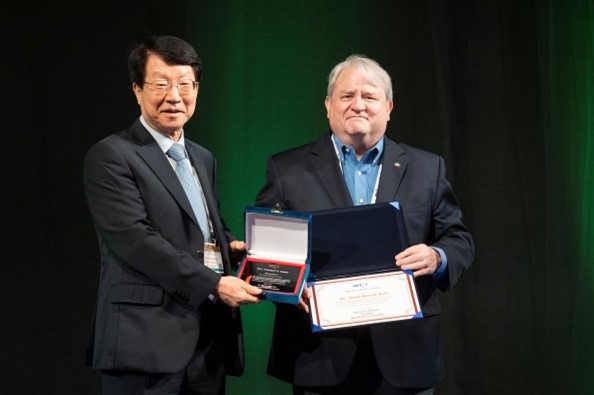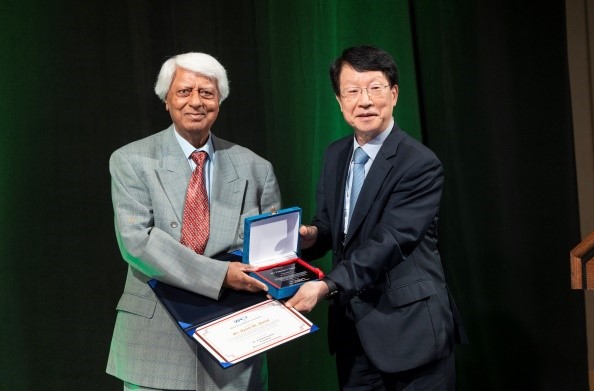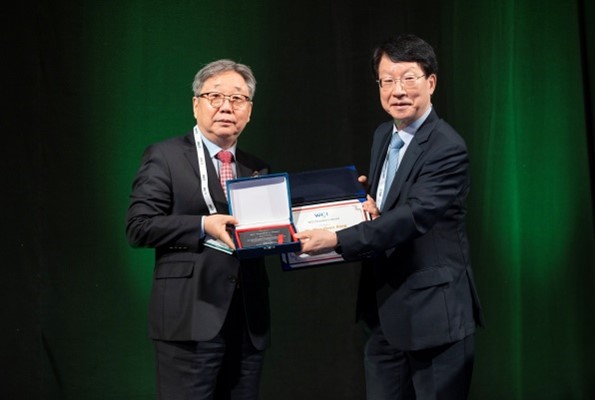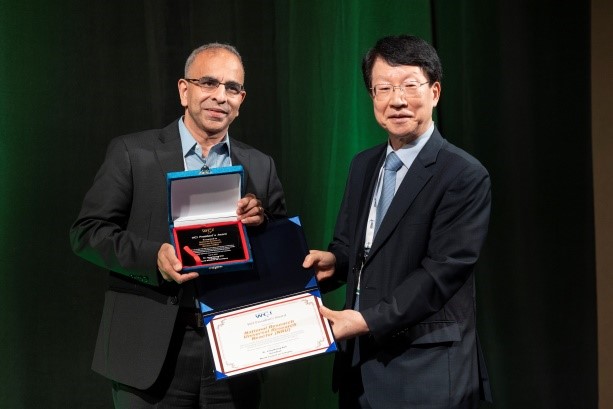Winners
WCI AWARDS WINNERS
2023 The President's Award
 Prof. Jong Kyung KIM is a founding member of the WCI. He served as the fifth WCI President during an extraordinary time of a global pandemic. Under his leadership, WCI was transformed to be a modern information-based organization and achieved recognition for its promotion of safe and environmentally sound isotope technologies for global wellbeing.
Prof. Jong Kyung KIM is a founding member of the WCI. He served as the fifth WCI President during an extraordinary time of a global pandemic. Under his leadership, WCI was transformed to be a modern information-based organization and achieved recognition for its promotion of safe and environmentally sound isotope technologies for global wellbeing.
 Prof. Qaim has spent decades of his academic life measuring isotopic cross-sections and purity levels for dozens of medically useful radioisotopes. He has led groups of investigators both locally and internationally in this work. He has published numerous papers and presented his work at many scientific meetings. He has been the clear leader of this effort over recent decades. Without this work the field of medically produced radioisotopes would not be anywhere near as advanced as it is today.
Prof. Qaim has spent decades of his academic life measuring isotopic cross-sections and purity levels for dozens of medically useful radioisotopes. He has led groups of investigators both locally and internationally in this work. He has published numerous papers and presented his work at many scientific meetings. He has been the clear leader of this effort over recent decades. Without this work the field of medically produced radioisotopes would not be anywhere near as advanced as it is today.
Prof. Qaim joined WCI many years ago and has contributed greatly to sessions at ICIs and other WCI supported meetings. He is also a member of the WCI Executive Committee (Education and Training).
 Mr. Song joined the WCI as Director of the WCI secretariat in September 2015 and held the position until September 2022. He was very active in supporting WCI activities (securing the annual budgets, designing and implementing plans) and helping the organization to expand its membership. He was instrumental in organizing isotope related schools and training courses in partnership with other organizations.
Mr. Song joined the WCI as Director of the WCI secretariat in September 2015 and held the position until September 2022. He was very active in supporting WCI activities (securing the annual budgets, designing and implementing plans) and helping the organization to expand its membership. He was instrumental in organizing isotope related schools and training courses in partnership with other organizations.
Mr. Song was always present for meetings, conferences and important events such as signing official agreements. He oversaw the development of WCI web pages, its newsletters, and other related activities. He also oversaw staff efforts and other aspects of the WCI office. Without Mr. Song’s continual effort and support, the WCI would not be as successful as it is today.
Presently, he serves the WCI as an International Coordinator.
 The NRU reactor from its initial start-up in 1957 until it completed its mission on March 31, 2018, produced more medical isotopes than any facility in the world.
The NRU reactor from its initial start-up in 1957 until it completed its mission on March 31, 2018, produced more medical isotopes than any facility in the world.
Though designed in the nuclear ‘hey days’ of the 1940s and early 50’s, the low-temperature, low pressure, 135 MW NRU enabled great advances across a wide swath of globally important industrial sectors; however, the reactor’s most significant contribution was in nuclear medicine, specifically the supply of medical radioisotopes.
The core of the NRU reactor was about 3 meters (9.8 ft.) wide and 3 meters (9.8 ft.) high, which is unusually large for a research reactor. That large volume enabled the bulk production of many different isotopes. Though specific numbers fluctuate, it is generally accepted that isotopes produced in the NRU have been used in medical procedures for well over 1 billion patient treatments. At various points in its history, this reactor was providing more than 80% of the world’s medical radioisotopes molybdenum 99. While new supplies and technologies were introduced over time, in the final years of its operation, the medical isotopes created by the NRU were still estimated to benefit over 76,000 people every day and 27 million people every year, in more than 80 countries.
Isotopes produced include Cobalt-60 (once about 75% of the global supply), Molybdenum-99m (once over half of the world's total supply), Xenon-133, Iodine-131, Iodine-125, Carbon-14, and Iridium-192.
Additional isotopes produced in NRU throughout its operation include:
• Gold-198 • Polonium-210, • Samarium-153, • Yttrium-90, • Nickel-63 • Clorine-36. Over the service life, over sixty different isotopes were produced at the NRU and NRX.
While the NRU reactor was certainly the cornerstone of isotope production, this nomination extends beyond the skilled hands and talented minds of the reactor’s team, and is meant to encompass all the Chalk River Laboratories’ staff who served in this mission and through, their innovation when developing new applications, and their dedication to ensuring a reliable supply of these critical medicines that have indisputably saved, improved and extended so many patients’ lives during the period from 1957 through 2018 which has established Canada’s leadership position in this field.
The NRU truly did make outstanding contributions to the promotion of isotope technologies and the use of isotopes to benefit all mankind.